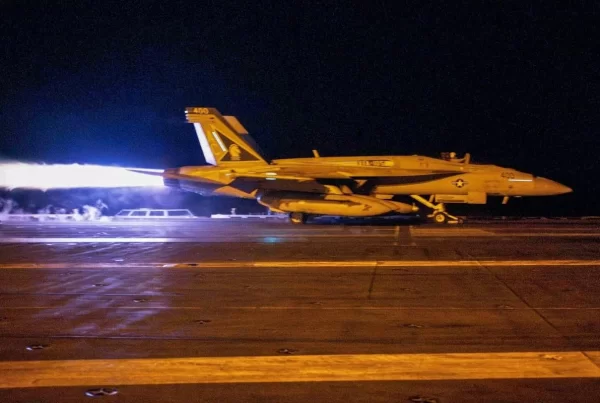Troops from the United Arab Emirates are playing a deeper role in the Yemen conflict, freeing a British hostage held by al-Qaeda in Aden and helping coalition forces fighting Houthi rebels in the oil-rich Marib province.
Robert Douglas Semple, 64, a petroleum engineer kidnapped by al-Qaeda in February 2014, was freed by Emirati forces in Aden, the official WAM news agency said Sunday. U.K. Foreign Secretary Philip Hammond confirmed a British hostage had been rescued. In Marib, resident Mohammed al-Sharif said he saw the arrival of “huge forces,” which the Saudi-owned Asharq Alawsat newspaper said included Emirati soldiers.
The U.A.E.’s involvement comes as the Saudi-led coalition steps up its ground offensive after almost five months of airstrikes against the Houthis, who seized the Yemeni capital Sana’a in September and forced President Abdurabuh Mansur Hadi’s internationally recognized government to flee to neighboring Saudi Arabia earlier this year.
“The U.A.E. is playing a leading if somewhat silent role,” said Emile Hokayem, senior fellow for Middle East security at the International Institute for Strategic Studies in Bahrain. “The deeper coalition troops go into Yemen, the higher the operational risks. Much depends on local support, its cohesion and the coalition’s ability to corral it.”
Iran’s Influence
The U.A.E. government declined to comment on its operations in Yemen, though its officials have accused Iran of seeking to expand its regional influence by backing the Houthis. The rebels deny being an Iranian proxy and accuse the coalition of enabling al-Qaeda to expand in the country. More than 4,400 people have died in the conflict, and more than 1.4 million have fled their homes, according to the United Nations.
Emirati troops are on the ground in Yemen and the U.A.E. has provided support and equipment to coalition forces fighting the Houthis, said a person with knowledge of the troop deployment, who asked not to be identified because they’re not authorized to speak on the issue.
The U.A.E. is also trying and has had some success in persuading tribes and supporters of former President Ali Abdullah Saleh, who is allied with the Houthis, to join the coalition, said the person, who has been briefed on the matter. Those tribes needed to be reassured of a sustained security presence on the ground, the person said.
Targeting Al-Qaeda
While the focus is on Houthi rebels, the U.A.E. will also act against al-Qaeda selectively if it obtains relevant intelligence, the person said. The group’s militants have taken advantage of the chaos to make strategic gains.
In the port city of Aden, which coalition forces had retaken, al-Qaeda fighters took control of a navy port, hotel and an intelligence building that they bombed, Fawaz Munir, a resident in the al-Tawahi district, said by phone. Samirah Naji, another resident, said al-Qaeda is positioned in a navy camp and sometimes raises the group’s black flag.
Hadi’s Deputy Interior Minister Ali Naser Lakhsha denied that al-Qaeda had seized al-Tawahi, according to a report by the independent Al-Masdar news website.
In Marib, armored vehicles, tanks and other heavy equipment arrived in the area Saturday and will play an important role in defeating the Houthis and their allies, said Saleh al-Anjaf, chief of the Marib Tribes Alliance, which is fighting the rebels and their allies.
Yemeni Fighters
The coalition is increasing its presence on the ground and material support, as well as inserting overseas-trained Yemeni fighters into the conflict, said Graham Griffiths, an analyst at Control Risks in Dubai. It’s a strategy which led to the recapture of Aden, he said.
“It’s unclear whether this kind of involvement of additional ground forces will really hasten the conclusion of the war or whether they’ll just get further deeply enmeshed in the conflict,” Griffiths said.
Coalition forces have had several casualties. On Sunday, Saudi Major General Abdul Rahman bin Saad al-Shahrani was killed during “random hostile fire” while inspecting units along the frontline of the southern region, according to the official Saudi Press Agency.
Even with more troops, retaking Sana’a won’t be as easy for the coalition as its gains in the south, where it had more popular support, said Farea al-Muslimi, a visiting scholar at the Carnegie Middle East Center in Beirut.
For the Houthis and their allies, Sana’a “will be their Leningrad,” he said, referring to the siege of the city during World War II. “They will not easily give up on it.”





